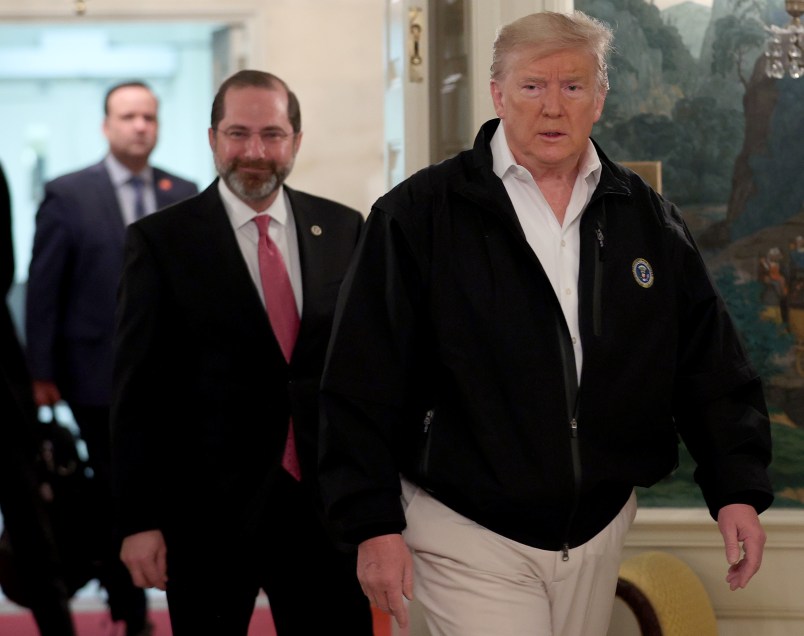Speaking to reporters during his visit to the Center for Disease Control on Friday afternoon, President Trump referred to the governor of the state that’s experienced the most widespread coronavirus outbreaks as a “snake.”
“I told Mike not to be complimentary of the governor because that governor is a snake, okay?” Trump told reporters after they asked about Vice President Mike Pence’s state visit to Washington with Governor Jay Inslee. “Inslee. I said, ‘if you are nice to him, he will take advantage’ and I would have said no. Let me just tell you we have a lot of problems with the governor… The governor of Washington, that’s where you have many of your problems, okay?”
President Trump: "That governor is a snake, Inslee." pic.twitter.com/o9scpwPc1y
— The Hill (@thehill) March 7, 2020
Pence was reportedly complimentary of Inslee during his visit to Washington, but Trump was likely responding Inslee’s ongoing criticism of the administration’s handling of the coronavirus outbreak in the U.S. In a tweet last month, Inslee said he told the vice president that the Trump administration’s public remarks on the virus have been less than truthful.
I just received a call from @VP Mike Pence, thanking Washington state for our efforts to combat the coronavirus.
I told him our work would be more successful if the Trump administration stuck to the science and told the truth.
— Jay Inslee (@JayInslee) February 28, 2020
During that same conversation with reporters at the CDC Trump also suggested that “anybody that needs a test can have a test.”
“They have the tests and the tests are beautiful. Anybody that needs a test gets a test,” he said.
This is not true. States across the nation have complained they have not received enough tests to process all the cases in front of them. For example, California only has 516 tests despite the fact that thousands are being observed for possible signs of the virus. Trump administration officials have maintained that they’d soon send 1 million to 1.5 million tests to states across the country, but many health officials say even that will not be enough.



